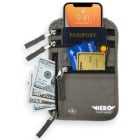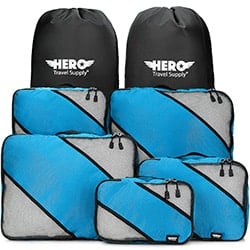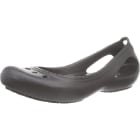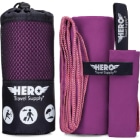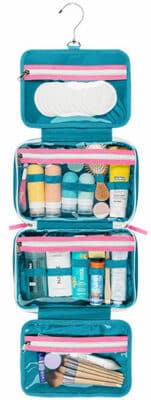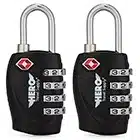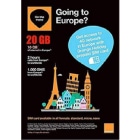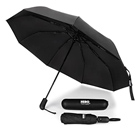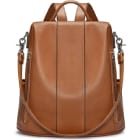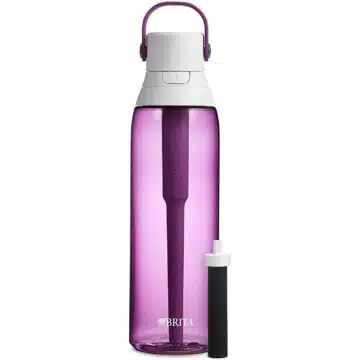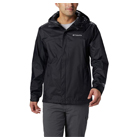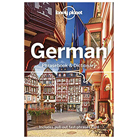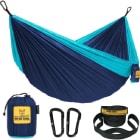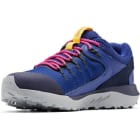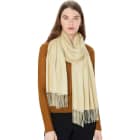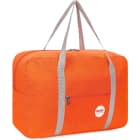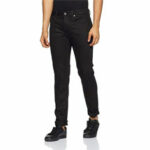From punk rock warehouse parties to the opera, Germany combines music with style to show off its diversity. Whether your taste is classical or avant-garde, functionality and simple elegance pervade across the country. Berlin by far is the most sartorially diverse city in Germany, whereas tastes swing more conservative in Bavaria.
When traveling in Germany, do as the locals do and opt for comfortable items that fit well and easily match. A neutral color palette with a few bold accents here and there goes over well.
With fashion’s emphasis on the functional, you don’t need to bring too much clothing. Dressing in layers will combat seasonal weather changes, and keeping colors and prints consistent will help you mix and match without weighing down your suitcase.
What should WOMEN wear in Germany? – (Click to expand)
Germany might be known for its understated fashion sense (famed designer Jil Sander hails from the tiny town of Wesselburen), but this country welcomes style in all shapes and colors. Everyone is free to dress in whatever way makes them happy in Germany’s bigger cities. In summer women can’t go wrong with a sundress, denim jacket, and stylish sneakers or flats. For evening, jeans, a sleek blazer, and heels make for an elegant dinner outfit.
What should MEN wear in Germany? – (Click to expand)
Whether you prefer to dress up or dress down, Germany offers something for everyone. Home to brands like Puma and Hugo Boss, this country caters to all tastes. To blend in with the locals, men can’t go wrong with fitted jeans and a comfortable tee shirt with a stylish pair of trainers to match. Leather jackets and black denim are hardly out of place in trendy Berlin or Frankfurt. Clothing should be casual by day, and by night anything goes.
Germany’s weather varies by season and region, so it’s always a good idea to dress according to your main activities (museum visits and city life vs. camping and hiking). Keep the following points in mind:
Weather: Even in the busiest of cities, plan to spend plenty of time outdoors. From biergartens to exploring each city’s unique architecture, you will spend a lot of time in streets or parks. You will spend even more time out in the elements if you venture to the countryside to explore Germany’s stunning forests, mountains, seaside, and lake districts. The opportunities to enjoy the great outdoors are endless. But sometimes, so is the rainfall. Weather varies greatly by season, and sometimes you will see four seasons in a day—so it is always best to come prepared.
Spring – March, April, May
By March, the sun rears its head and people start heading to the parks for a beer. Still, while spring is lively it can remain chilly and rainy. It’s very common for it to start raining suddenly, or for a strong breeze to bring on a chill. To enjoy social activities like grabbing a drink in a local Biergarten, expect to wear a wind-breaking jacket and carry an umbrella in hand.
By April it warms up slightly, and May and June show much milder weather with more consistent sunshine. Bear in mind that average temperatures in the mountains will be a little cooler. Average temperatures in March hover between 33 and 47 (1 to 8 C), rising to 39 all the way to 67 (3 to 19) by mid-May.
Summer – June, July, August
Summer might be just as varied as spring, with bouts of rain and wind here and there. Nevertheless, summer is when you can most reliably expect temperate weather and sunny skies in any part of the country. Temperatures vary significantly in the mountains, but typical of a moderate continental climate, Germany will offer plenty of toasty and sunny days perfect for an afternoon in the park and enjoying the beautiful architecture of Berlin, Hamburg, and Munich.
Average temperatures in the north hover between 21 and 25 (69 to 77), with two major exceptions: the mountains and the northern coast. Mountain temperatures stay in the single digits, from 2 to 9 (35 to 48) degrees. And the seaside is very warm, with temperatures frequently rising to 30-32 degrees (86-90).
Autumn – September, October, November
September is mild, offering summer’s last leg of sun and warmth before temperatures cool down and it begins to rain again. Expect plenty of sunshine throughout most of the country, with the exception, as always, of the mountains. If you are heading to Oktoberfest, you’ll be wise to wear layers, but keep your sunglasses handy.
By October, temperatures will drop and winds will pick up quickly. By November, the days get quite short and it not uncommon for a bit of frost or snow to fall. To feel comfortable in the city or country, a warm jacket, long trousers, and weather proof shoes are a must.
Winter – December, January, February
Winter in Germany earns its cold and bleary reputation year on year-end. In the north temperatures quickly drop to near freezing, hovering around 1 degree (33 Fahrenheit), but the coast welcomes warm waterfronts that keep these temperatures relatively stable.
Further to the south, temperatures will vary but cities like Berlin and Hamburg stay close to the temperatures range of -2 to 4 degrees (28 to 42), with most days rather grey. Meanwhile, Bavaria, where Munich is located, is reliably colder and greyer—witnessing Germany’s longest winters. Here, temperatures stay much closer to the lower end of the national average, usually between -2 to 0 (28 to 32). The elevated region of Thuringia will also see snowfall and further drops still, which leaves no doubt that a German winter requires thick layers, a hooded coat, and mittens.





